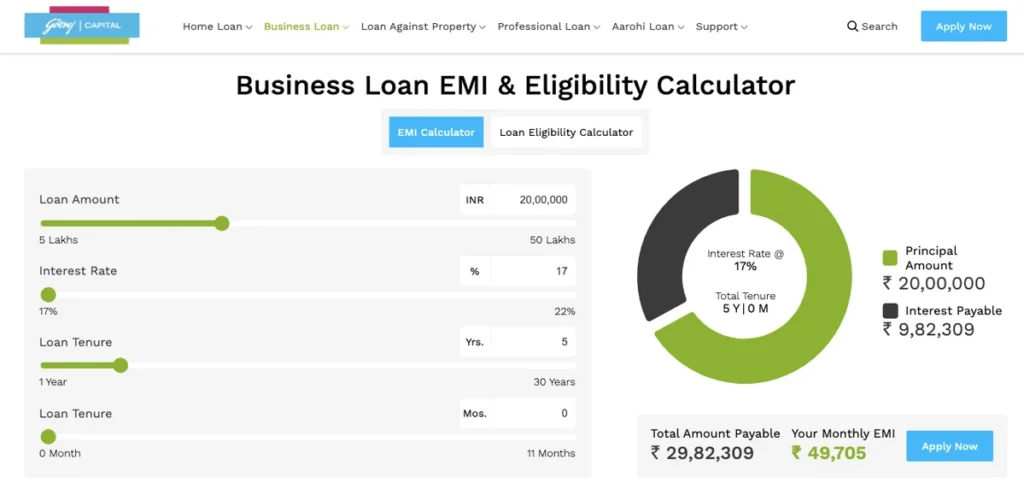The thriving Indian economy, diverse consumer demand and expanding e-commerce make it an ideal location for starting a wholesale business. Wholesalers serve as a vital link between manufacturers and retailers, facilitating the smooth flow of goods in the supply chain. Success in wholesale requires strategic planning, careful budgeting and market understanding, whether dealing in consumer goods, industrial equipment or fashion products. Key factors include operational efficiency, strong supplier relationships and effective financial management.
What Is a Wholesale Business?
A wholesale business involves purchasing goods in bulk from manufacturers or distributors and selling them to retailers, institutions or other businesses at a markup. Wholesalers focus on volume-based sales and operate as intermediaries rather than directly selling to end consumers.
How to Start a Wholesale Business in India?
Here is a step-by-step guide to successfully setting up your wholesale business.
1. Choose the Right Product or Industry
Your first step is to identify a profitable product segment. The product you choose should meet consistent market demand and offer reasonable margins.
Some of the best wholesale business ideas in India include:
- Packaged foods and FMCG products
- Mobile accessories and electronics
- Garments and textiles
- Building materials
- Home decor and furnishing
Choose a product category you understand well and that has repeat-purchase potential.
2. Conduct Market Research
Before investing in inventory, research your target market thoroughly. Analyse the following factors:
- Demand trends in your region
- Retailer needs and buying capacity
- Competitor pricing and distribution models
- Supplier availability and credit terms
A clear understanding of the market helps you price your products competitively and avoid overstocking or cash flow issues.
3. Create a Business Plan
A well-structured business plan helps set the foundation for your venture. Include key sections such as:
- Business objectives and model
- Product sourcing and pricing strategy
- Target customer profile
- Sales and marketing plan
- Estimated investment and revenue projections
This document is especially useful when approaching banks or financial institutions for funding support. Reputed lenders such as Godrej Capital and other financial partners often review such plans before approving Business Loans.
4. Register Your Business and Obtain Licenses
Ensure your business is legally compliant. Depending on the nature of your products, you may require:
- GST Registration: To collect and remit taxes legally.
- Trade License: Issued by local authorities.
- Import License: If you plan to source goods internationally.
- FSSAI License: For wholesale businesses dealing in food items.
A valid GST number not only ensures tax compliance but also builds credibility among retailers and suppliers.
5. Arrange Funding and Manage Finances
Starting a wholesale business involves upfront expenses such as purchasing bulk inventory, setting up a warehouse and managing logistics. To manage these effectively, entrepreneurs often rely on Business Loans.
Before applying, it is essential to calculate repayment capacity using a Business Loan EMI calculator.
How it helps:
- Estimates monthly EMIs based on loan amount, interest rate and tenure.
- Helps in budgeting operating expenses alongside loan repayments.
- Prevents over-borrowing and ensures financial stability.
For example, if you take a ₹20 Lakh loan for 5 years at 17% interest, a Business Loan EMI calculator will show an approximate monthly payment of ₹49,705. Knowing this upfront allows you to balance expenses and revenues efficiently.

To evolve your business and meet growing capital needs, you can avail Business Loans from reputed lenders like Godrej Capital, which offer flexible and tailored financial solutions for established wholesale enterprises.
6. Find Reliable Suppliers and Distributors
Suppliers are the backbone of your wholesale business. Establish strong partnerships with manufacturers who can deliver consistent quality, timely supply and flexible credit terms.
When negotiating with suppliers, focus on:
- Price per unit and volume discounts
- Return policies for defective goods
- Credit periods and minimum order quantities
- Transportation and delivery schedules
Building long-term supplier relationships ensures stability and helps you respond faster to market demand.
7. Choose the Right Warehouse Location
A strategically located warehouse is essential for efficient operations. Look for areas with:
- Proximity to transportation hubs (highways, ports or airports)
- Sufficient space for storage and loading
- Safety and temperature control (if dealing in perishables)
A well-organised warehouse reduces operational delays and prevents stock losses.
8. Invest in Technology and Inventory Management
Technology can significantly improve your efficiency. Use software for:
- Inventory tracking and stock alerts
- Order management and billing
- Customer relationship management (CRM)
- GST-compliant invoicing and return filing
Automating routine processes helps you save time and reduce errors in large-scale operations.
9. Market Your Wholesale Business Effectively
Even in B2B trade, marketing plays a vital role in growth. To attract more retailers and institutional clients:
- Create a professional website with your product catalogue and contact details.
- Use digital marketing and social media to build visibility.
- Participate in trade fairs and business networking events.
- Offer volume-based discounts or loyalty incentives.
Word-of-mouth referrals and online presence together create a sustainable customer base.
10. Maintain Strong Customer Relationships
In wholesale, long-term relationships matter more than one-time sales. Offer excellent service, quick deliveries and flexible payment options to retain retailers.
Regularly seek feedback and keep clients informed about new products or offers. A consistent, service-oriented approach helps build trust and ensures repeat business.
Top 5 Profitable Wholesale Business Ideas in 2025
While wholesale opportunities exist in almost every sector, some categories are expected to grow faster in the coming years.
- Organic and Health Foods: Rising demand for organic products offers immense potential.
- Mobile Accessories and Electronics: High turnover and recurring demand make this a strong segment.
- Eco-Friendly Packaging Materials: With sustainability gaining traction, biodegradable products are in demand.
- Construction Materials: Rapid urbanisation and real estate growth drive a consistent need.
- Apparel and Fashion Accessories for Women: A dynamic category with high margins during seasonal trends.
Each of these wholesale business ideas can be scaled efficiently with proper market research, supplier tie-ups and working capital management.
Financial Planning and Loan Management
A successful wholesale business depends on how effectively you manage cash flow and debt. Here are a few financial management tips:
- Track Expenses: Record all transactions digitally for transparency.
- Separate Working Capital and Long-Term Investments: Avoid mixing day-to-day operational funds with fixed investments.
- Monitor Loan Repayments: Use a Business Loan EMI calculator to stay on top of your payment schedule.
- Reinvest Profits: Channel a part of your earnings into inventory expansion or technology upgrades.
Reputed lenders like Godrej Capital offer flexible Business Loan options tailored for wholesale entrepreneurs, helping them manage expansion without disrupting liquidity.
Conclusion
Starting a wholesale business can be a rewarding venture when approached strategically. From selecting the right product category to building supplier networks and managing cash flow, every step contributes to success.
Choosing scalable wholesale business ideas, using technology for efficiency and maintaining compliance through accurate invoicing and taxation will set a strong foundation.
Tools like a Business Loan EMI calculator empower entrepreneurs to make informed financial decisions and manage repayments effectively.
With smart planning, steady execution and financial prudence, your wholesale business can grow consistently and thrive in the rapidly expanding marketplace in India.






